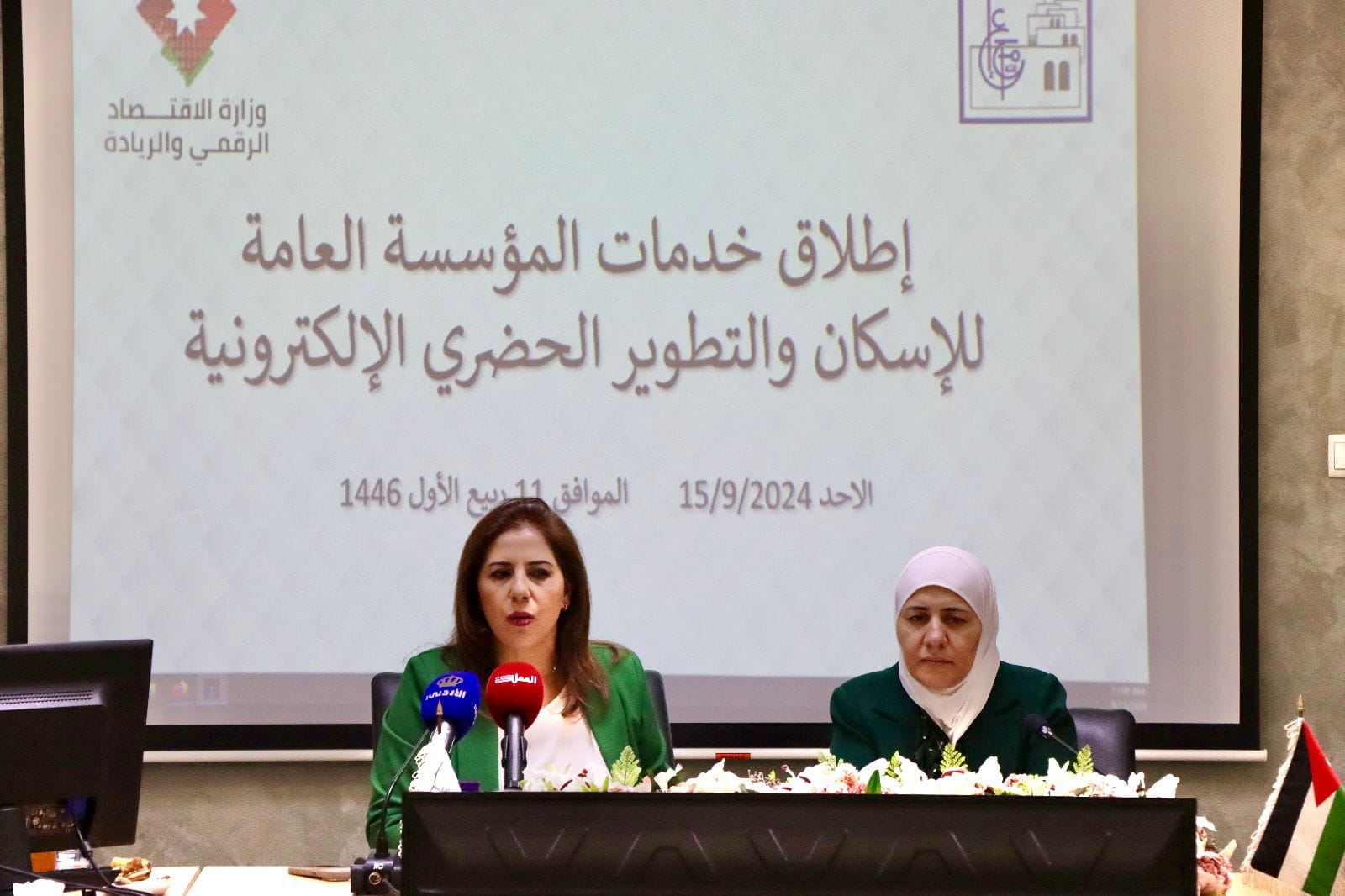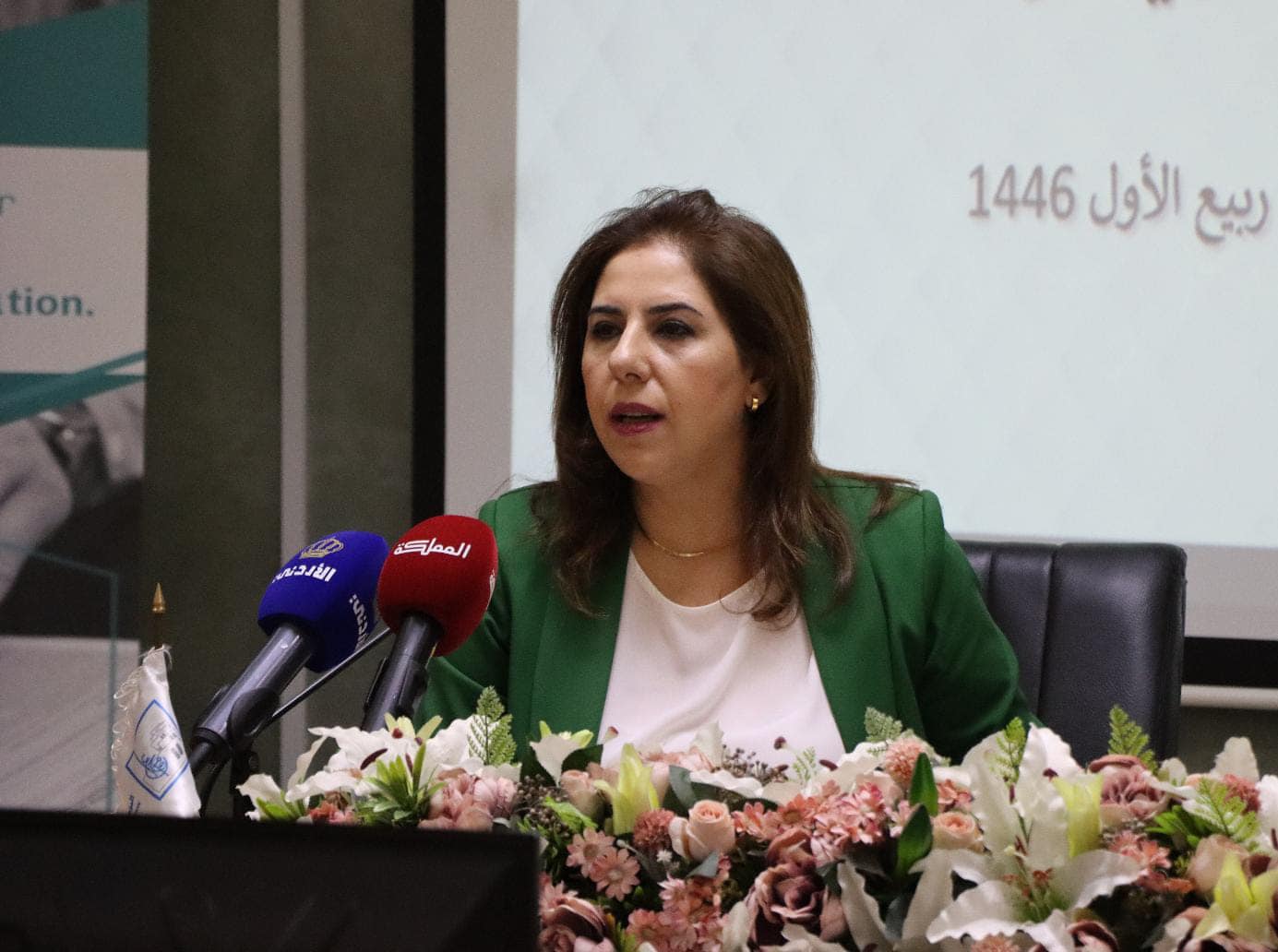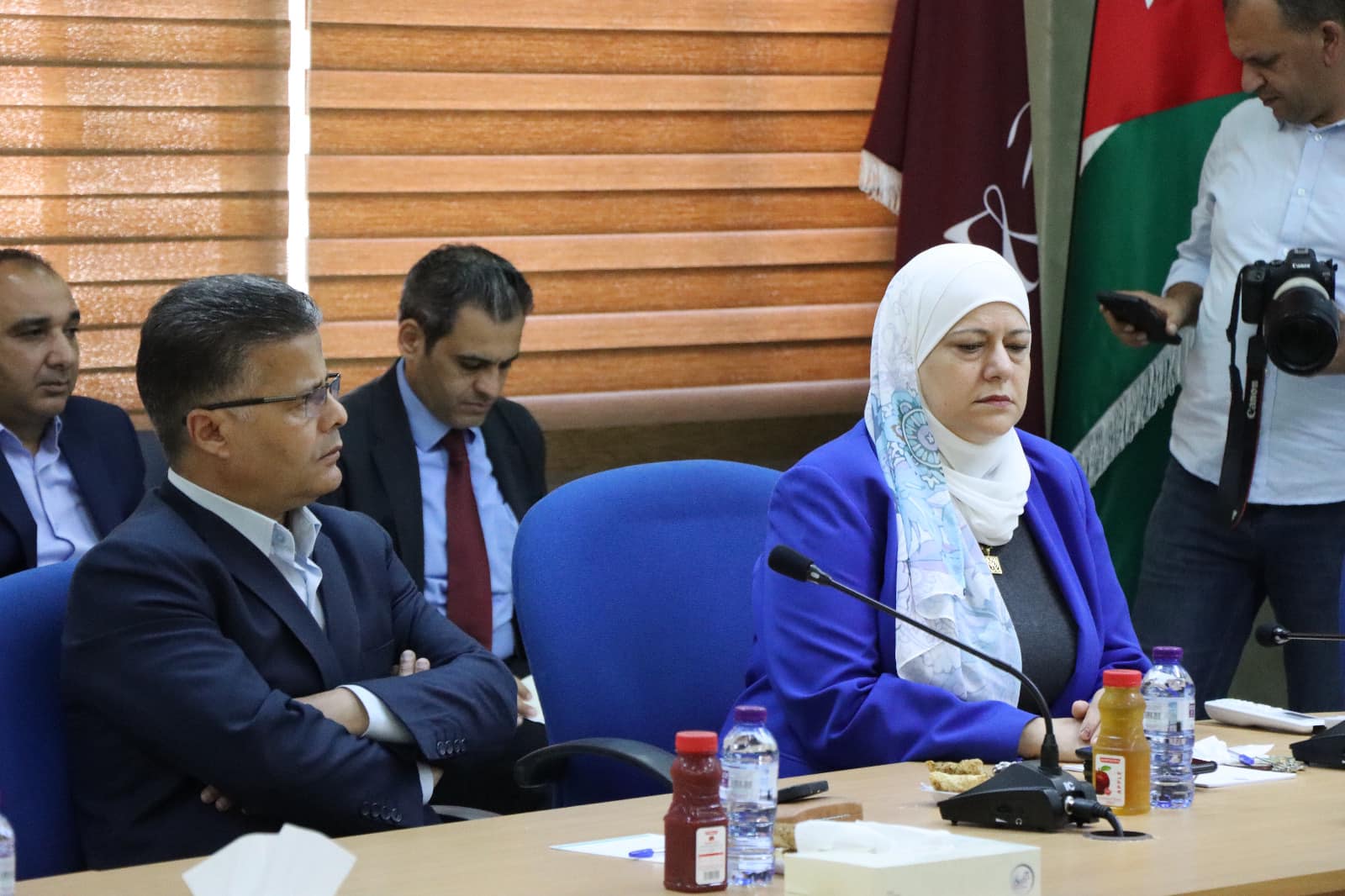The Public Institution for Housing and Urban Development (HUDC), in collaboration with the Ministry of Digital Economy and Entrepreneurship, launched on Sunday as part of the digital transformation project that comes in coping with the public sector modernization roadmap, 21 electronic services.
The Director General of HUDC, Eng. Jomana Attyat, said the launch carries goals and directions related to the transition towards knowledge and technology society, advancing the business environment, improving government performance, and promoting more transparency and efficiency, to enhance the life of the Jordanian citizen through the use of various communication and technology means.
She explained that these electronic services include direct sales service, property allocation through competition, property sale and rental through sealed bid auctions, direct renting; request, release, amendment, and transfer of rental; issuance of a letter of inquiry, beneficiary account statements, payment of dues and rents, issuance of allocation certificates and transfer of ownership and sale services, issuance of site plan, transfer of ownership and abstention, transfer of rights from deceased creditors, requests for beneficiary clearance, requests for explanations, and retrieval of beneficiary registration. She also pointed out that the institution started archiving the files of beneficiaries and tenants more than 4 years ago, with over 21,000 done thus far, a thing that has significantly reduced the need for paper files, overcome difficulties and delays in completing work and made the process of retrieving required documents easier.
Attyat emphasized that the institution has created an institutional memory to preserve documents and plans, work on archiving them, track progress, and ensure quality control and updating procedures. She noted that this achievement aligns with the institution's vision of a pioneering and intelligent housing sector and its mission to enable citizens to acquire suitable housing and develop modern housing policies that align with global advancements. She said, "Digital transformation allows citizens to access services with ease and convenience, without difficulty. It achieves one of the fundamental pillars of government work and contributes to the institution's role in its economic modernization initiatives, which are represented by three initiatives: the low-cost housing model, the housing sector regulation draft law, and the foundations and criteria for future cities."
For her part, Samira Al-Zoubi, the Secretary-General of the Ministry of Digital Economy and Entrepreneurship for Administrative and Financial Affairs, clarified that the launch of the "National Registry for Managing Government Services" represents an important step towards enhancing the efficiency and transparency of government services, and delivering them in a comprehensive and accessible manner to citizens and residents.
She added that by the end of next year, all government electronic services will be completed. She considered that the National Registry system will facilitate the management of over 2,700 government services and approximately 300,000 performance indicators, with the aim of improving the efficiency and quality of services provided to the public.
Al-Zoubi invited all categories of users and applicants for these services, including citizens, residents, businesses, and government entities, to review the service requirements, including conditions, documents, and fees, to prepare them before applying for services. She also advised them to familiarize themselves with the available channels for submitting requests and the various stages of the service. She also expressed her hope that this platform would contribute to improving the efficiency of government work, reducing the time and costs associated with providing services, and aligning with the national vision for achieving excellence and innovation in delivering public services.
In addition, Rami Rawashdeh, the Director of E-Government at the Ministry of Digital Economy, discussed the plans and priorities for digital transformation, focusing on Jordanian citizen and the services that directly impact them. He emphasized the importance of developing and improving these services to achieve a developed and smart country, ultimately enhancing the comfort and well-being of citizens.





